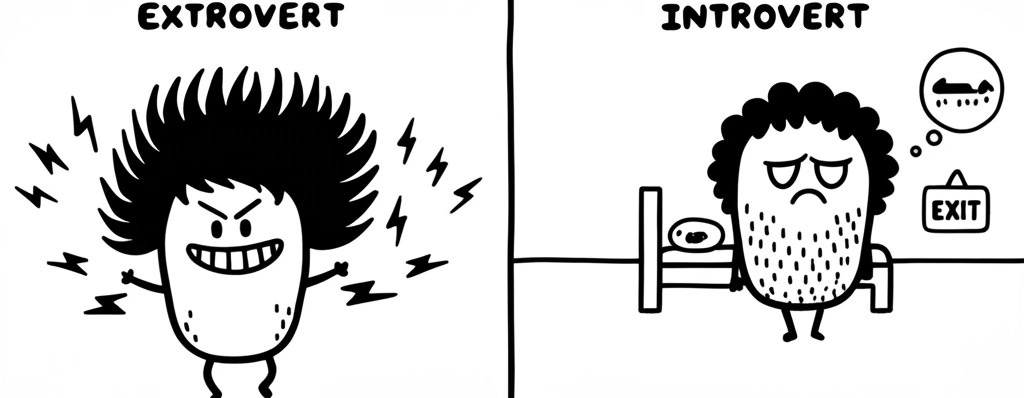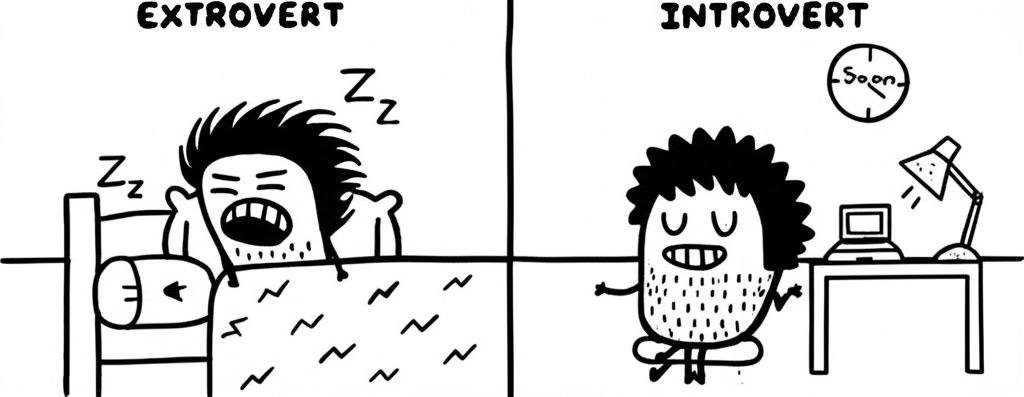Just finished Lenny Rachitsky's podcast with Susan Cain, author of "Quiet." Honestly, it's been a while since something resonated with me this deeply. Had to share some thoughts while they're still fresh.
For years, I secretly felt that my introversion was something to overcome, especially when building startups. The office always seemed to reward those who spoke loudest and networked hardest, while I'd be mentally counting minutes until I could return to deep work. I'd force myself to be "on" at conferences, pitch meetings, and networking events, only to collapse afterward from what I now recognize as social battery depletion.
The key insight: introversion isn't a weakness - it's a different set of strengths. Instead of thriving on social energy, we excel at deep thinking. Instead of quick decisions, we offer careful analysis. Instead of maintaining hundreds of shallow connections, we build fewer but more meaningful relationships.
The Science of Quiet
What fascinated me most about Cain's research:
One-third to half of all people are introverts - far more than our extrovert-celebrating culture would suggest. We're not a small minority; we're nearly half the population!
There's a crucial difference between introversion (preference for less stimulation) and shyness (fear of social judgment). You can be an introvert without being shy, and vice versa. I'm definitely an introvert but not particularly shy - I just find social interaction more draining than energizing.
What seems like "becoming more extroverted" with age is actually just skill acquisition, not a fundamental personality change. This explains so much! I haven't become more extroverted; I've just gotten better at managing social situations while remaining fundamentally the same.
The "two-hour heuristic" at parties: extroverts get energized after two hours, while introverts feel drained and look for exits. This explains my entire conference experience - I'm always looking at my watch around the two-hour mark, wondering when I can escape without seeming rude.
Introverted children need a longer "runway" to warm up to new situations, whether school, swimming, or social events. Pushing them too quickly can backfire spectacularly.
The Ambivert Advantage
I was surprised to discover that ambiverts - those in the middle of the spectrum - often make the best salespeople. They balance the extrovert's ability to close with the introvert's skill at listening deeply to customers' needs. Looks decent!
This makes me wonder if the most successful founders might also be slight ambiverts - having enough introversion for deep work and thoughtful analysis, but enough extroversion to pitch effectively and build networks. Though pure introverts like Warren Buffett show that with enough skill development, we can excel even in traditionally extroverted domains.
Practical Strategies for Leveraging Introversion
After diving into Cain's ideas, I've started implementing some practical changes:
Block 3-4 hour chunks for uninterrupted deep work. This is non-negotiable now. My best work happens at 5 am - that quiet time when I think clearly and create without interruption. Ideas flow and problems solve themselves almost magically.
Speak early in meetings to avoid the building anxiety of waiting. This simple hack has made meetings much less stressful. By getting my thoughts out early, I can then relax and engage more naturally for the remainder.
Connect one-on-one instead of large networking events. I've shifted my networking strategy from attending massive industry events to cultivating deeper relationships with fewer people. The quality of these connections is far more valuable than collecting hundreds of business cards.
Use the "tomorrow test" for commitments: "Would I say yes if this were happening tomorrow?" This simple question helps me avoid overcommitting to future social events that will drain me when they actually arrive.
Clearly communicate ambitions to mentors and colleagues. Since quietness is often misinterpreted as lack of ambition or engagement, I'm now more explicit about my goals and interests. This prevents the common assumption that the quiet person has nothing to contribute.
The Introvert's Guide to Impact
Susan's own journey is inspiring - she was terrified of public speaking but overcame it through gradual exposure. She didn't become an extrovert; she developed specific skills while honoring her fundamental nature.
And I loved her story about Gandhi, another famous introvert: "In a gentle way, you can shake the world." Warren Buffett, Bill Gates, and Malcolm Gladwell are other powerful examples of introverts who've shaped our world not by being the loudest, but by channeling their natural strengths.
The most powerful takeaway? "The more introverts become deeply comfortable in their own skin, the more powerful they appear." Authenticity trumps forced extroversion every time.
Rethinking Success
Looking back at my career, I now realize that my biggest contributions and best work have almost always emerged from those quiet, focused moments of solitude - not from brainstorming sessions or networking events. The products I've built, the strategies I've developed, the insights I've uncovered - they all came from deep, uninterrupted thought.
I've stopped asking how I can be more extroverted and started asking how I can leverage my natural introvert strengths. The results have been transformative - both professionally and personally.
For years, I felt like I was playing a character when I forced myself into extroverted behaviors. Now I understand that success doesn't require changing who I am - it requires building on who I already am.
This isn't just about feeling better (though that's a major benefit). It's about effectiveness. When we work with our natural tendencies rather than against them, we unlock our true potential.





